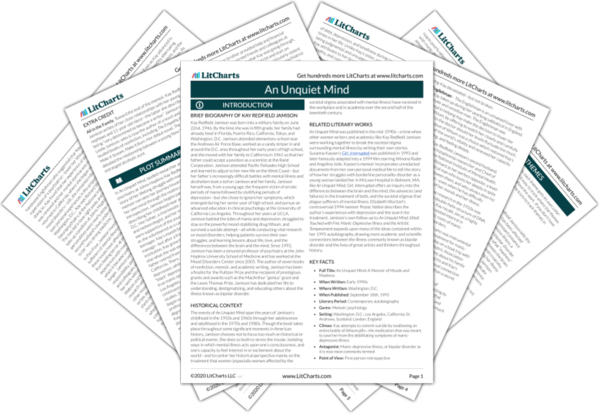Jamison understands that, while society does unfairly stigmatize those with mental illness—especially in the professional realm—there are very real reasons that liability measures are in place. The problem, she suggests, is the stigma that exists in the first place; if she was as scared as she was to be honest about her illness, there are no doubt many, many others who lie on their forms or resist treatment out of fear of admitting they have a problem or need the support of their colleagues, actions which could potentially endanger themselves or their patients.


